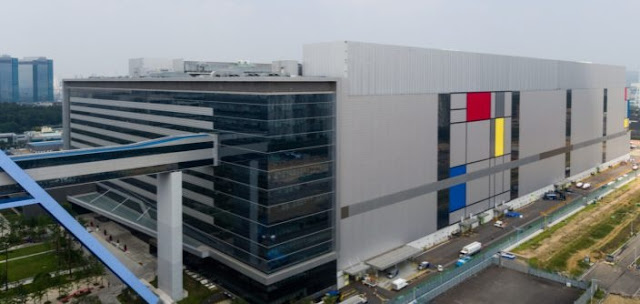 |
| Samsung Electronics’ S3 manufacturing line located in Hwaseong, Korea |
The new 10-nanometer LPP chips are reportedly manufactured in much the same way as Samsung's current LPE wafers, so the little delay is expected for full volume production. Samsung has already qualified its 8-nm chips that, despite having smaller traces, are also manufactured in much the same way as its 10-nm processors.
By releasing 2 iterative versions of its current chips, Samsung is biding its time until it perfects 7-nanometer manufacturing, which needs the use of extreme ultraviolet light (EUV) lithography. because of that, increases in speed and power for your upcoming smartphone are expected to be modest -- around 10-15 % for each of the next 2 generations. Rival TSMC is supposedly ahead of Samsung in 7-nanometer chip manufacturing, creating speculation that Qualcomm might jump ship in the future.
Samsung gets a more credit for beating Intel in chip tech, but both companies are presently making modest gains, not doubling performance like we used to see. Intel has boasted, however, that it's 10-nanometer Cannon Lake tech will be a generation ahead of its main rivals, Samsung and TSMC, because it's packing more features into a similar area. both Samsung's 8-nanometer chips and Intel's 10-nanometer model's are alleged to go into manufacturing by next year.